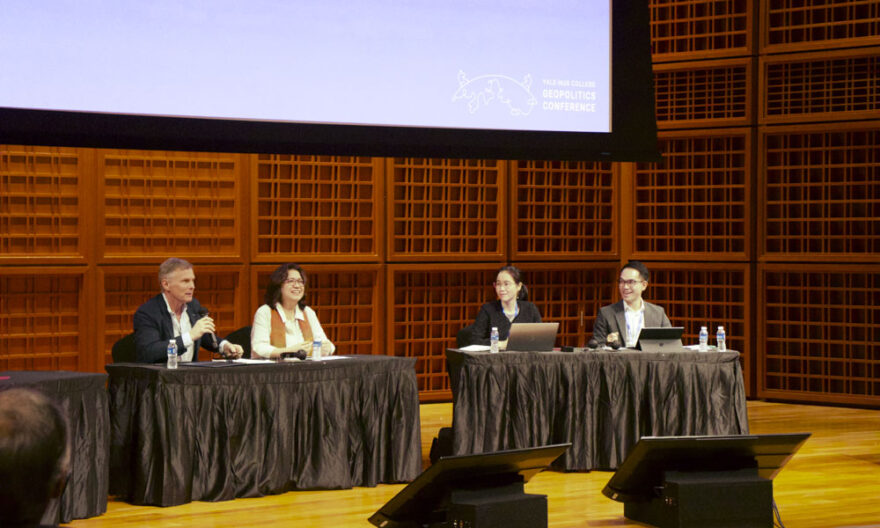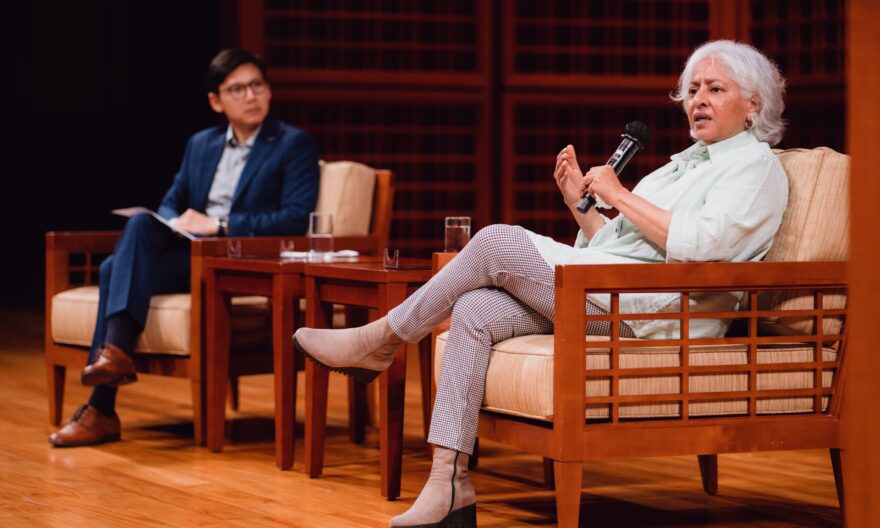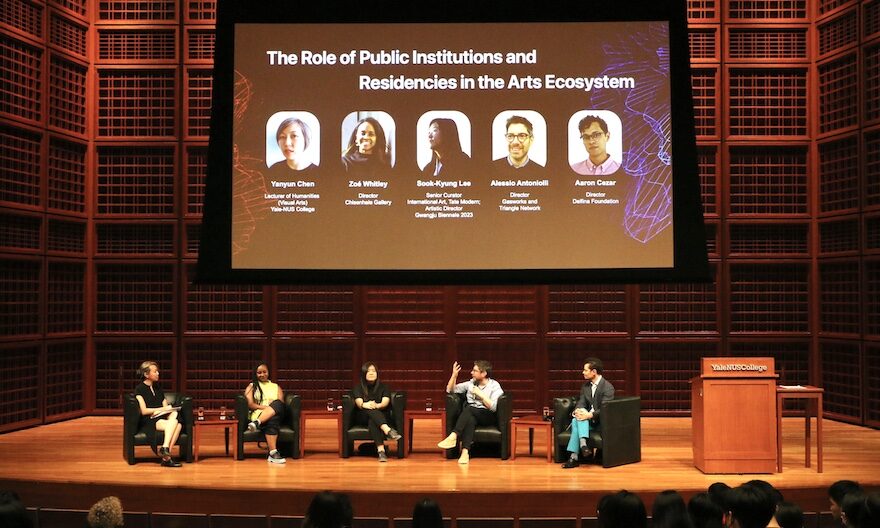Making an impact in the field of Urban Studies with the support of the J Y Pillay Fellowship
Established to support and nurture young academics as they participate in the College’s diverse curriculum and programmes, the J Y Pillay Fellowship is part of the J Y Pillay Global-Asia Programme, supported by philanthropic gifts from various corporations as well as individuals. The latest recipient of the Fellowship is Assistant Professor of Social Sciences (Urban Studies) Nick R Smith, the third J Y Pillay Fellow.
“I was excited by the chance to participate in shaping the Urban Studies programme, which offers an opportunity to make an important pedagogical contribution, not only to Yale-NUS, but to the field of urban studies more generally,” said Asst Prof Smith. Unlike most undergraduate Urban Studies programmes, which are established either through the interdisciplinary combination of other pre-existing programmes or as specialty offerings within larger pre-existing departments, the Urban Studies programme at Yale-NUS has its own dedicated group of faculty and a stand-alone curriculum of courses.
“The Urban Studies faculty at Yale-NUS faced a unique set of opportunities, as we sought to shape a curriculum from scratch and with relatively few precedents—an undertaking not unlike the Yale-NUS project as a whole,” he added.
Beyond his involvement in curriculum design and development, Asst Prof Smith teaches a variety of courses in Urban Studies, including Urban Theory and Urbanisation in China, as well as Modern Social Thought in the College’s Common Curriculum. He has also led several Learning Across Boundaries (LAB) programmes — faculty-led experiential learning projects for students organised by the Centre for International & Professional Experience (CIPE) — and he is a committed advisor and mentor to his students both in and out of the classroom.
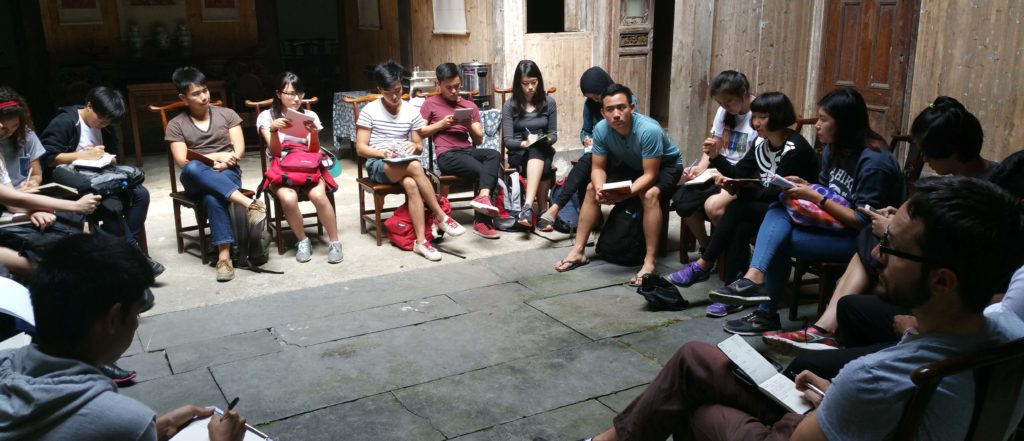 Asst Prof Smith leads students in a discussion of sustainable village development practices in Xidi Village in Anhui Province, China. Image provided by Amanda Lim.
Asst Prof Smith leads students in a discussion of sustainable village development practices in Xidi Village in Anhui Province, China. Image provided by Amanda Lim.
“As a teacher and mentor, Asst Prof Smith sets high standards. His classes are always engaging and he also provides valuable feedback during the discussions,” said Ernest Tan (Class of 2019) who had participated in Asst Prof Smith’s first Week 7 project to Anhui, China, in 2015. Ernest also noted that Asst Prof Smith’s pedagogical approach has helped him and his peers “develop a reflexive inner critic that constantly pushes them to improve their work”.
This is a sentiment shared by Al Lim (Class of 2019), who has also worked closely with Asst Prof Smith and sees his academic and capstone advisor as “an inspiration” in his undergraduate career.
“The ability to deep-dive into these theories and concepts, as well as to investigate the mutual constitution of theory and praxis in everyday life and beyond, was a key takeaway from my whole Yale-NUS experience,” Al explained.
Al cited the Urban Theory class with Asst Prof Smith as one of the most defining college experiences he’s had as it set the foundations for his Urban Studies journey.
“Asst Prof Smith’s care for students shines through both inside and outside the class. His advising on my graduate school choices, career prospects and academic life have been invaluable throughout my undergraduate journey,” Al added.
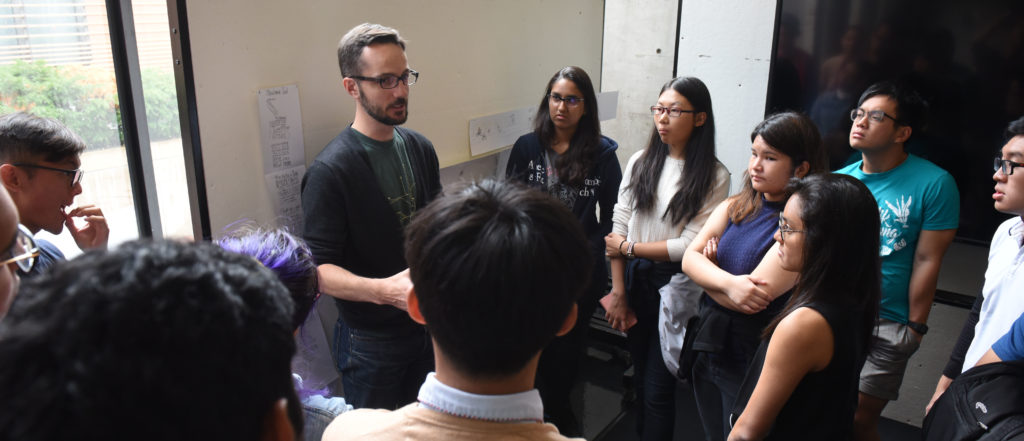 Asst Prof Smith (centre, in black) briefs students in preparation for a charrette on public space at Yale-NUS. Image provided by Zac Yeow.
Asst Prof Smith (centre, in black) briefs students in preparation for a charrette on public space at Yale-NUS. Image provided by Zac Yeow.
In his research, Asst Prof Smith focuses on urban transformation and planning, exploring the city as an institution and planning as a process of institution building.
“The J Y Pillay Fellowship has provided important support for my continuing research on the history of the Shekou Industrial Zone, the first development zone founded in mainland China after the beginning of the reform era in 1978,” he said.
Coincidentally, much of Shekou’s development was modelled after Jurong in Singapore, which Deng Xiaoping visited just before Shekou’s establishment. “It therefore feels particularly appropriate to be conducting this research with the support of the J Y Pillay Fellowship, since Prof Pillay played an important role in Jurong’s development,” Asst Prof Smith said.
Named after Professor J Y Pillay, an outstanding Singaporean civil servant, policymaker and corporate leader, the Fellowship is part of the J Y Pillay Global-Asia Programme. During the term break in 2018, Asst Prof Smith had the opportunity to chat with Prof Pillay about his work in Jurong, and he looks forward to speaking with other pioneers about their recollections of Jurong’s early development.
“The J Y Pillay Global-Asia Programme is dedicated to the development of innovative academic and student programmes that integrate Western and Asian ideas and cultures, a mission that resonates with my research in Shekou, which served as an important site of international exchange and learning as China opened up to the world during the early years of the reform era,” Asst Prof Smith said.

